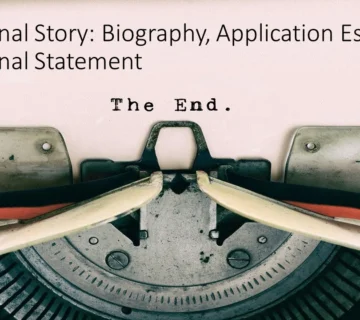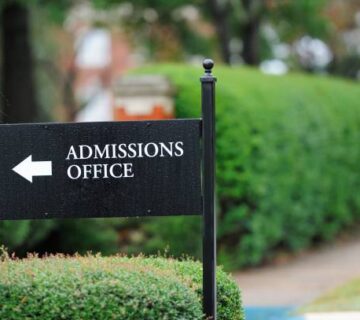School visits
According to Pennington, visiting the campuses of prospective colleges is one of the most important things students can do as part of their decision-making process. In general, she encourages students to schedule visits to two or three schools on their list. Although there may be costs associated with travel, meals and hotel stays, campus visits are free to students and their guests.
“But what they gain from just going to the campus can be priceless,” Pennington says.
Visits are valuable because they allow students to talk to admissions counselors and professors, while also getting a feel for the campus climate and how the students interact.
“I try to remind students that a lot of what they see and how they are treated on those visits are all indicators of how it’s going to be if they choose a particular campus,” she says. “Those types of things are really important to look at, no matter which school you’re visiting.”
When visiting, Pennington suggests setting up appointments with professors to provide an opportunity to ask more detailed questions about particular majors or research programs, as well as any scholarships available for specific areas of study. She also encourages visiting students to talk to students currently on campus.
“We use our university ambassadors to give the tours. I always tell my families to ask these university ambassadors questions about what they like or don’t like about the school,” Pennington says.
Pennington also emphasizes the importance of asking about resources for student support – everything from financial and mental health to career centers and tutoring.
Deadlines
Meeting the general application deadline is obviously important. However, as Pennington points out, it’s important to pay attention to other deadlines, too.
“At TU, we call them ‘special programs,’” she says. “These are really just any programs that might take a separate application other than the application to the university for admission.”
Those types of applications are generally due in January or February. At TU, this includes the Presidential Scholarship, honors programs, research programs and the Pathway to Sports program, which creates opportunities for students to obtain practical skills and experiences in preparation for a career in the sports industry.
“These are programs that enhance a student’s time on campus,” she says. “If there are programs you’re interested in at a university, whether or not you’ve decided to attend, make sure you know those deadlines.”
Outside scholarship applications
Although Pennington admits the process can be onerous, she encourages students to take time early in the spring semester to research and apply for “outside scholarships,” monies awarded by an organization other than the government or your college. Examples include scholarships sponsored by a community or cultural group, a civic organization, or a parent’s employer.
“I tell students to apply, apply, apply,” she says. “The hunt for outside scholarships can be very painstaking and can get overwhelming. Start early and tackle it in small chunks over time.”
Assess financial aid
It’s important for students and their families to fully understand what college will cost and what financial aid will cover, making sure to compare “apples to apples.” Does the financial aid package cover tuition only? Tuition and books? Having a comprehensive list of what the student will actually be paying is very important. Personalized appointments with university representatives can help make this determination.
Update applications
Consider updating your applications if fall semester grades or new standardized test scores reflect a significant improvement.
“At TU, you have until February 1 to give us updated transcripts and test scores that might boost your academic scholarship higher,” she says. “Let’s say you had a tough junior year and received some C’s for the first time ever, but then made straight A’s your seventh [fall] semester, and your GPA shot up.”
Cut-off dates for updating academic information vary from school to school, so be aware of those deadlines.
Students ultimately decide
Although Pennington believes parents are an important part of the process of finding a college home, ultimately, students have to make their own decisions.
“Parents are a big part of this process. As parents, we need to be giving them the tools they need – encourage them to get in touch with their admissions counselors, gather information, pay attention to student programming, activities and clubs,” she says. “But I think students have to figure things out for themselves.”
Julie Wenger Watson is a freelance writer who’s worked in all aspects of music promotion. She’s also Co-Director of “Live From Cain’s,” a public radio show pilot.





No comment